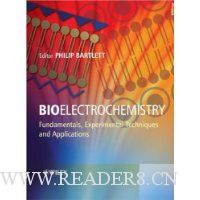| 商家名称 | 信用等级 | 购买信息 | 订购本书 |
 |
Bioelectrochemistry: Fundamentals, Experimental Techniques and Applications |  |
|
 |
Bioelectrochemistry: Fundamentals, Experimental Techniques and Applications |  |

By bringing together these different aspects, this work provides a unique source of information in this area, approaching the subject from a cross–disciplinary viewpoint.
专业书评 Bioelectrochemistry is the study and application of biological electron transfer processes. Over the last 25 years we have learnt some of the important factors which control the interaction between biological redox partners, including how to apply this knowledge and to start to design electrode surfaces, through deliberate chemical modification, so that the biological molecules will interact in a productive way with the electrode surface and facilitate efficient electron transfer. Over the same period significant parallel developments in physical electrochemistry have meant that the tools and techniques, such as in situ infrared spectroscopy, SERS, EQCM, STM and AFM, now exist to study the electrode solution interface at the molecular level. These techniques are now being used to characterise chemically modified electrode surfaces and to study their interaction with biological molecules.
Bioelectrochemistry: Fundamentals, Experimental Techniques and Applications, covers the fundamental aspects of the chemistry, physics and biology which underlie this subject area. It describes some of the different experimental techniques that can be used to study bioelectrochemical problems and it describes various applications of bioelectrochemistry including amperometric biosensors, in vivo applications and bioelectrosynthesis.
This volume provides a modern view of the field and is appropriate for graduate students and final year undergraduate students in chemistry and biochemistry as well as researchers in related disciplines including biology,physics, physiology and pharmacology.